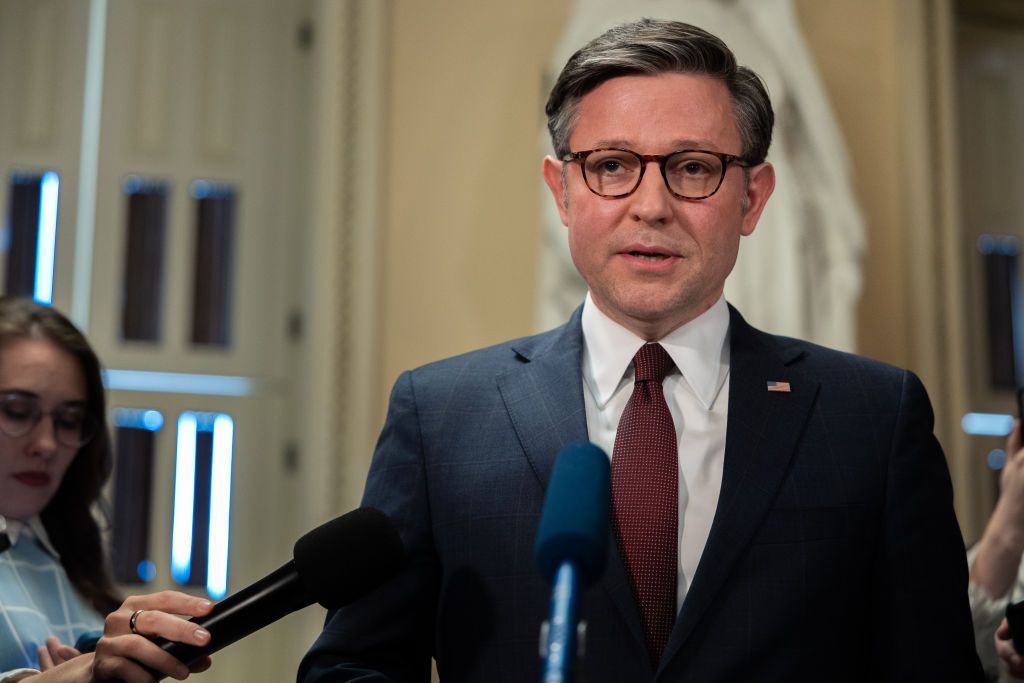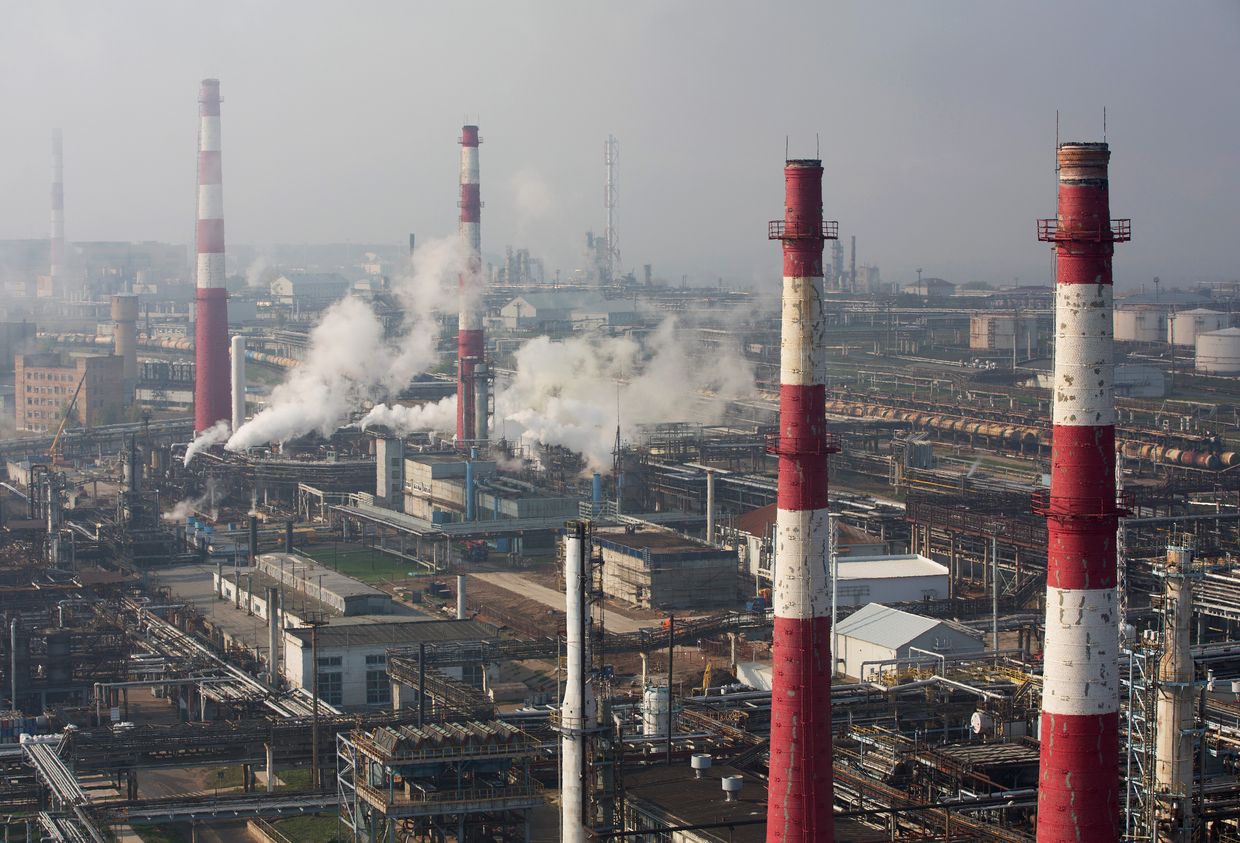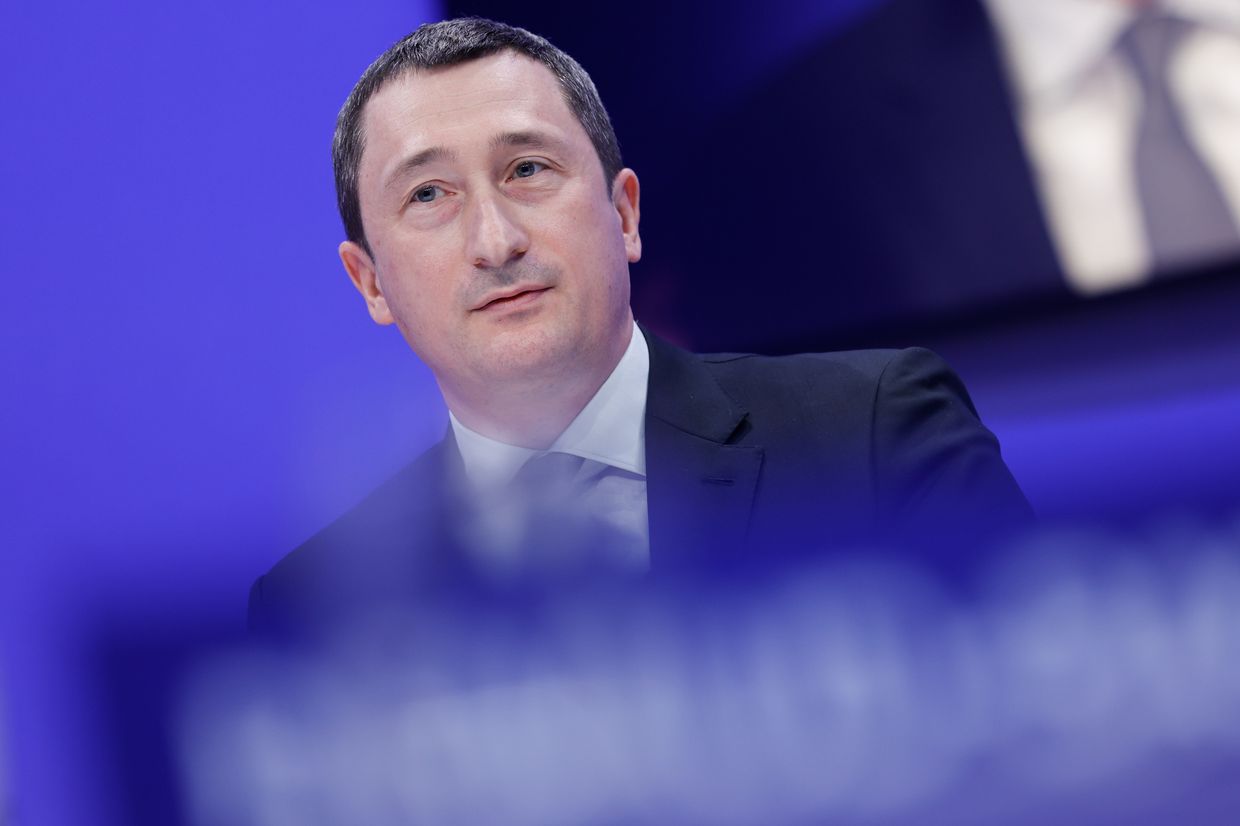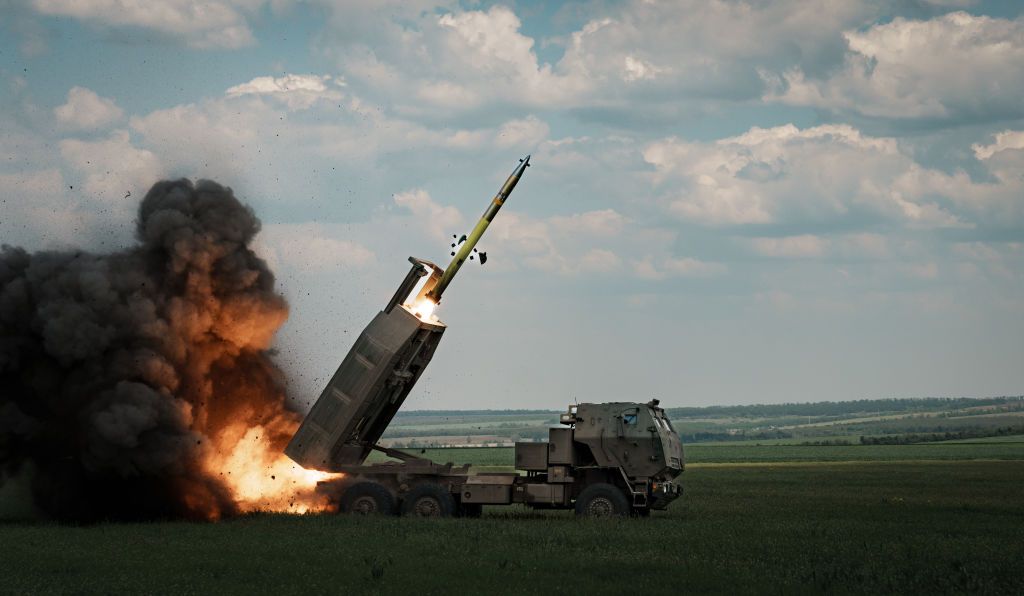Ukraine war latest: Ukrainian forces retreat from 3 villages as Russia gains foothold on eastern front

Key developments on April 27-28:
- Syrskyi: Ukrainian forces retreat from 3 villages in Donetsk Oblast
- Military: Russia gains foothold in Ocheretyne in Donetsk Oblast
- Politico: Zelensky told Johnson Ukraine could only hold on until 'March or April' without US aid
- Ukraine strikes oil refineries, airfield in Russia
- Russia attacks Ukraine's gas infrastructure
- Japan, Norway, Belgium, Spain pledge aid to Ukraine
Ukrainian troops have retreated west from Berdychi, Semenivka, and Novomykhailivka villages in Donetsk Oblast, the Commander-in-Chief of Ukraine's Armed Forces Oleksandr Syrskyi said on April 28.
The villages sit in the Pokrovsk community in the western part of Ukraine's Donetsk Oblast, which remains one of the hottest sectors of the front line as Russia continues its offensive.
The Khortytsia Group of Ukraine's Ground Forces reported on April 27 that Russian forces managed to break in and gain a foothold in a part of Ocheretyne, a front-line village nearly 10 kilometers from Berdychi and Semenivka.
Syrskyi described the situation in the Pokrovsk and Kurakhove sectors as "the most difficult one" now.
According to the commander-in-chief, Russia is involving up to four brigades (from 8,000 to 32,000 personnel) to conduct assault operations in the direction of the cities of Pokrovsk and Kurakhove west of Avdiivka, which was captured in February.
"In general, the enemy has succeeded tactically in these directions but has failed to achieve an operational advantage," Syrskyi said in a statement shared on Facebook and Telegram, adding that Ukraine will do unit rotations in this sector of the front.
Syrskyi stressed that Russian troops are attacking throughout the entire front line. The situation is changing "dynamically," he added.
Russian forces continue their offensive operations in the directions of Kupiansk and Lyman settlements in Kharkiv Oblast, as well as in the Siversk, Sloviansk, and Kramatorsk sectors in Donetsk Oblast, according to the commander-in-chief.
Syrskyi said that the situation in the south also remains "intense" as Russia tries to advance near the village of Krynky in Kherson Oblast, Robotyne and Verbove villages in Zaporizhzhia Oblast, and Staromayorske in Donetsk Oblast.
Politico: Zelensky told Johnson Ukraine could only hold out until March, April without US aid
President Volodymyr Zelensky told U.S. House Speaker Mike Johnson in December 2023 that, without American support, Kyiv could only fend off Russian attacks until March or April of 2024, Politico reported on April 26, citing undisclosed sources.
At the time of the alleged conversation, U.S. aid for Ukraine had been blocked in Congress for three months.
The Ukraine aid bill has since been approved by both chambers and signed by U.S. President Joe Biden, restoring the flow of American military assistance.
Johnson's refusal to hold a vote on previous iterations of the aid bill has led many to blame the speaker for the delays that put a heavy strain on Ukrainian defenders.
According to Politico, Zelensky provided Johnson with a "deadline" for how long Ukraine could hold out without Washington's backing.
This meeting and the pessimistic prognosis "contributed greatly to Johnson's decision" to hold a vote despite the opposition of hardline members of the Republican Party, Politico reported.
Johnson's team then drafted a workable aid package by that deadline "just in case."
This was a notable shift compared to previous months when the speaker insisted on tying the foreign aid components with border security measures, which were seen as too draconic by the Democratic Party.
Another influence that pushed Johnson toward putting forward the Ukraine bill was his national security adviser, Josh Hodges, Politico said.
Hodges reportedly told Johnson that aiding Kyiv was a "cost-effective" way of countering the growing axis between Russia, China, and Iran.
There has been much debate on the real motivations behind Johnson's shift, and it is far from certain that there had been one decisive factor.
Despite Politico's story, after meeting Zelensky in December, the speaker said that the two officials had a "good" meeting but said that it had not affected the conditions for passing the bill.
Ukraine hits oil refineries, military airfield in Russia
The Security Service of Ukraine (SBU) launched drone strikes against two oil refineries and a military airfield in Russia’s Krasnodar region overnight on April 27, a source in the security and defense forces told the Kyiv Independent.
In recent weeks, Ukrainian forces have launched a series of drone strikes aimed at damaging Russia's oil industry, which is crucial to sustain Moscow's war efforts. In one of the latest attacks, the SBU hit two oil depots in Russia's Smolensk Oblast on April 24, destroying 26,000 cubic meters of fuel.
Kyiv usually does not officially comment on strikes on Russian soil.
Drones hit "key technological objects" at the Ilsky and Slavyansk oil refineries overnight on April 27, causing fires and evacuation of personnel, the source said.
A Russian oil refinery in Slavyansk-on-Kuban in Krasnodar Krai partially suspended operations following a purported Ukrainian drone attack, Russian state-owned news agency TASS reported on April 27.
The SBU and Ukraine's Defense Forces also struck the Kushchyovskaya military airbase, "where dozens of military aircraft, radars, and electronic warfare devices were stationed," according to the source.
"The SBU continues to effectively target military and infrastructure facilities behind enemy lines, reducing Russia's potential for waging war."
The Russian Defense Ministry claimed its forces shot down 66 Ukrainian drones over the Krasnodar region and two more drones over occupied Crimea.
Veniamin Kondratyev, the governor of Russia's Krasnodar region, said on Telegram that Ukraine "attempted" to attack local oil refineries and infrastructure but claimed there were no serious damages. According to Kondratyev, over 10 drones were intercepted over the Slavyansk, Kushchyovsky, and Seversky districts, where the said facilities are located.
Roman Sinyagovsky, the head of the Slavyansk district, said that drones targeted "a factory" in the city of Slavyansk-on-Kuban, where the Slavyansk refinery is located. Sinyagovsky did not specify which facility was hit but said that the plant's distillation column was damaged.
The regional department of Russia's emergency services reported a fire at the Sloviansk refinery, adding that they had already extinguished it.
The Kyiv Independent is unable to verify claims made by Russian authorities.
According to Ukraine's Energy Ministry, a bitumen factory and "a number of other facilities" were also targeted in the Krasnodar region overnight. The Kyiv Independent's source did not provide information on the additional targets.
Russian Telegram channels also reported on the drone attack on the Krasnodar region, publishing videos showing large explosions. Baza Telegram channel said the attack lasted 1.5 hours.
Strikes against Russian energy targets have prompted criticism from U.S. officials, who have made it clear that Washington does not support Ukraine's attacks on oil refineries, citing fears that it could threaten the global energy market.
In response, President Volodymyr Zelensky said that Kyiv has the right to use its own weapons with retaliatory strikes on Russian oil refineries.
Russia attacks Ukraine's energy infrastructure
Russia's attack against Ukraine early on April 27 targeted gas infrastructure facilities of the Naftogaz Group, the company's press release said.
Moscow's troops launched yet another aerial attack on Ukraine's critical infrastructure in the early hours of April 27, hitting energy facilities in Dnipropetrovsk, Ivano-Frankivsk, and Lviv oblasts.
The Naftogaz Group did not specify in what oblasts the targeted gas facilities were located, nor what the full consequences of the attack were.
"Fortunately, no one was hurt. The attack will not affect the provision of services to Ukrainian consumers and clients of the Group," the company said.
"Our employees and relevant services are dealing with the consequences of the attack."
After Ukraine went through the winter with a relatively stable situation in the energy sector, Russia began attacking the country's gas infrastructure with the arrival of the spring months.
Two of Naftogaz's underground storage facilities were targeted on April 11. The company's sites were also attacked during strikes on March 24 and 29.
Meanwhile, Russian troops have struck Ukraine's thermal power plants almost 180 times since the beginning of the full-scale invasion in 2022, Dmytro Sakharuk, the executive director of Ukraine's largest private energy company DTEK, said on April 28.
Moscow has recently intensified its missile and drone strikes against Ukraine's critical infrastructure, launching large-scale attacks on energy facilities across the country.
Shmyhal: Ukraine has received $12 billion in international aid this year to help cover budget deficit
Prime Minister Denys Shmyhal announced during a government meeting that Ukraine has received approximately $12 billion in external financing since the beginning of the year to help address the budget deficit.
In an address to the World Bank and International Monetary Fund forum last October, Shmyhal noted that Ukraine would require nearly $42 billion in economic assistance in 2024 to offset the deficit. According to Shmyhal, the deficit will make up as much as 21% of Ukraine’s GDP this year.
He highlighted the recent receipt of 1.5 billion euros from the EU, and noted that nearly $8 billion would come from the U.S. aid package that passed this week.
Shmyhal emphasized that these funds are crucial for financing medical services, salaries for healthcare workers and teachers, and social programs.
"We are grateful to our allies and partners for their support," Shmyhal said.
The U.S. House of Representatives finally passed a foreign aid bill amounting to $60.84 billion on April 20, after months of political infighting. The aid package became finalized after the U.S. Senate approved the bill and President Biden signed it.
The Norwegian Ministry of Defense revealed plans to provide up to $13.7 million for maintaining Leopard 2A4 tanks at a Polish maintenance center.
The funds will cover support, repair, and maintenance for the provided equipment, with technical assistance to be administered in Poland.
Additionally, Norway has recently donated military supplies worth approximately $91.3 million (1 billion NOK) to Ukraine, including artillery shells, anti-tank weapons, and minesweepers.
Belgium will pledge 200 million euros ($213 million) for the German-led air defense initiative and supply Ukraine with rockets, Belgian Defense Minister Ludivine Dedonder announced on April 26 during the press conference, according to the Belgian channel RTBF.
Ukraine is facing a shortage of air defense systems amid an uptick in Russian attacks on population centers and energy infrastructure.
U.S.-made Patriots are highly effective at intercepting Russia's ballistic and cruise missiles. Berlin is reportedly pressuring NATO and European allies to send their systems to Kyiv rather than keeping them unused.
Dedonder noted that Belgium would provide Ukraine with additional rockets from its own military stocks for the air defense systems. The Belgian Defense Minister did not specify the number or the type of weaponry to be sent to Kyiv.
Meanwhile, Spain will provide Ukraine with Patriot anti-aircraft missiles, Spanish Defense Minister Margarita Robles announced on April 26 at the Ramstein-format summit.
Her confirmation follows media reports emerged saying Spain would send "a limited number" of such missiles, as the country only has around 50 total in reserve. Robles did not say how many of the systems Madrid will deliver.
Japanese officials expressed readiness to share expertise in nuclear safety and reconstruction, reaffirming ongoing support for Ukraine at international forums like the G7. Keichi Ichikawa, the Assistant Chief Secretary at Japan's Cabinet Secretariat, said that supporting Ukraine's energy sector remained the foremost focus of Japan's aid efforts.
Japan, the third largest donor to Ukraine, has allocated substantial financial aid, underscoring its commitment to Ukraine's recovery and energy security.
Since the start of Russia’s full-scale invasion, Japan has contributed around $8 billion to Ukraine in humanitarian and financial assistance, according to the Kiel Institute for the World Economy.

















